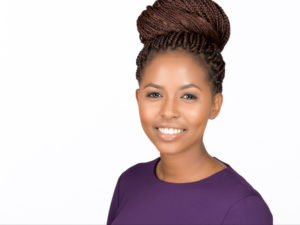
I was still a teen when I went from a college student to being a defendant in a sex trafficking case that has caught national attention. I was charged with multiple counts of sex trafficking. Meanwhile, my own trafficking and abuse has not been investigated. I know now that is very common for trafficking survivors who are viewed as criminals and not victims. I felt like all my pain was on display and I had lost everything.
When I was initially arrested, I felt relief. Jail felt safer than the constant threats, violence and sex that my trafficker inflicted on me in the months he exploited me and others. He controlled who I talked to, my movements and even what I wore and what I ate. After my arrest, I realized that I had forgotten vital parts of who I was because I had been fully conditioned by my trafficker. In the days after my arrest, I realized just how scared, alone and full of shame I was, too.
After being moved from jail to jail across the United States, I was finally able to be released to a treatment program while I awaited trial. I thought that I could finally begin to heal myself and maybe even help others around me. I was eager to seek this help and grateful for the chance to rebuild from the damage my trafficker had done to me. The nightmares, difficulties eatting and sleeping and constant worry that I was a bad person was a lot to handle.
Unfortunately, my journey of self improvement has been nothing but difficult for me because the mental health professionals often can’t fathom the fact that survivors of sex trafficking are also forced to commit crimes because of their trafficking situation. They view women in prison or treatment programs as bad women who need to be reprogrammed. This type of discrimination is not exclusive to sex trafficking. I have also seen this happen to other women who get generalized and neglected rather than allowing them to get the help they need to heal from the crimes done to them. This only leads to more abuse and pain, not a “better society.”
When I was released to the treatment program, I was required to complete a mental health and chemical dependency assessment. I completed both truthfully and with ease because I sincerely wanted to work on myself. I was sadly mistaken when they referred me to a rehabilitation facility where I was the only female among several older men. I felt very intimidated and alone. I could not speak out in front of them. I advocated for myself as much as I could emphasizing that the majority of my traumas came from men and I did not feel safe there. The staff politely ignored me and made up excuses as to why I must attend the group at all costs, even threatening me with contacting my probation officer, which could lead to my lack of freedom. It took a conversation between my lawyers and my probation officer for me to finally be able to stop attending these re-traumatizing groups.
A few months later, I was referred to an all women’s rehabilitation group, which I thought was a step in the right direction. The moment I walked in, I was completely disillusioned. From the start, I was marginalized and only seen for my ankle monitor and the charges held against me. They treated myself and other women like criminals and as if none of us had anything else going for us in life. Without even meeting with my counselor, I was placed in groups that made no sense to me such as “moral reconation therapy” which abides by a book called, “How to Escape Your Prison.”
The first group I attended there, I was overwhelmed when the counselor of the rehabilitation facility called out multiple women over false positives on their drug tests. Many of the women began to cry or out of the room as the counselor seemed to indulge in their anguish on the pretense of holding them accountable for their actions. I found the mistreatment to be unethical and expressed my beliefs during these groups only to be told by the counselor that the women required that level of harshness as they are on probation. At that instance, I knew that the counselor did not see the value of these women and only saw them for their mistakes.
My beliefs regarding the counselors only increased when they introduced me to what is known as “thinking reports.” and logs. Both disguise themselves as a means for holding yourself and others accountable yet they consist of identifying one’s alleged criminal thinking and add to unnecessary trauma. This includes writing things about how I am a “criminal” and a bad person who is undeserving. I felt like I was being brainwashed.
On one occasion, I brought a cup of coffee into the facility and was quickly reprimanded by a staff member who later told me I had to do a “thinking report” on the event as I showed signs of criminal thinking by bringing a cup of coffee into the building.
It is evident that the criminal justice system and professionals who lack an adequate understanding of the adversities that women are subjected to have failed survivors like me and will continue to do so until we rise up together to change how survivors are treated in the justice system.
Those who try to advocate for themselves are ignored and their actions considered acts of manipulation. This leaves their needs unfulfilled. Women need to be heard and understood rather than treated as criminals. They should be free to be vulnerable and not have their vulnerabilities used against them, which is in fact exactly what my trafficker did to me, too.
It is important to allow for growth through support and empowerment rather than through degradation. Accountability should not be regarded as a means for belittlement. Survivors of the abuses and exploitation that I and so many women caught up in the justice system’s cycle of punishment should be believed. We are not the things done to us or the crime we are charged with; we are human beings.



